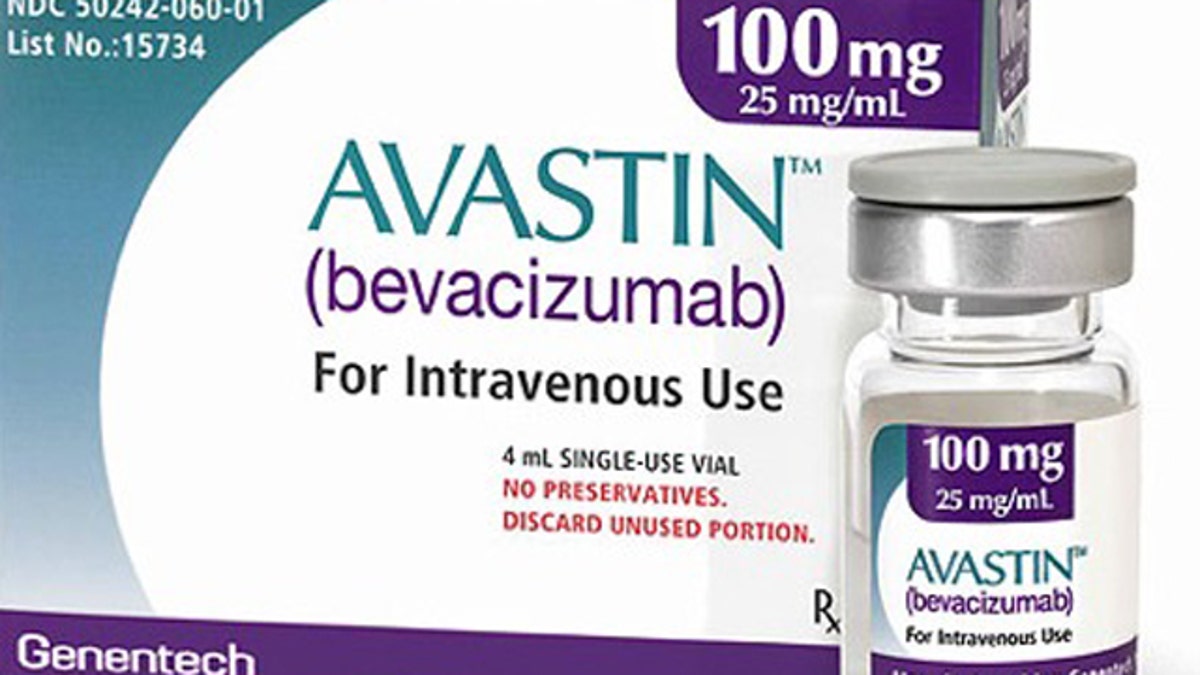
The U.S. Food and Drug Administration announced it is recommending that doctors do not use the drug Avastin to treat breast cancer anymore because it has not been proven safe and effective for treatment of that disease.
The FDA made the recommendation after reviewing results of four clinical studies of Avastin in women with breast cancer. The data indicated the drug does not extend overall survival in patients with breast cancer or slow the disease progression to outweigh significant risks.
The drug’s risks include severe high blood pressure; bleeding and hemorrhage; the development of perforations in the body (including the nose, stomach and intestines); and heart attack or heart failure, according to the agency.
“After careful review of the clinical data, we are recommending that the breast cancer indication for Avastin be removed based on evidence from four independent studies,” said Dr. Janet Woodcock, director of the FDA’s Center for Drug Evaluation and Research. “Subsequent studies failed to confirm the benefit observed in the original trial. None of the studies demonstrated that patients receiving Avastin lived longer and patients receiving Avastin experienced a significant increase in serious side effects. The limited effects of Avastin combined with the significant risks led us to this difficult decision. The results of these studies are disappointing. We encourage the company to conduct additional research to identify if there may be select groups of patients who might benefit from this drug.”
An independent advisory committee voted 12-1 in July to revoke Avastin for breast cancer treatment. The drug will still be available on the market, however, and can still be used to treat colon, kidney, brain and lung cancers.
Dr. Cynara Coomer, Chief of Breast Surgery and Director of the Comprehensive Breast Center at Staten Island University Hospital, told FoxNews.com that doctors should ultimately base their decisions on statistics.
“Avastin has been given to patients to decrease the chance of metastases, but they are not really finding that there is that much of a significant difference,” Coomer said.
The FDA still holds approval for Avastin for other types of cancer, because breast cancer was the only disease that showed lack of evidence for improved survival rates, according to Coomer.
“With indications such as metastatic colon cancer, metastatic kidney cancer and metastatic brain tumor — some of these cancers, the benefit of the drug clearly outweighs the risks of the drug,” she said. “With breast cancer, it is not as clear that it is improving the chance of survival for these women taking it, according to the studies by the FDA.”
Coomer said she thinks the reaction to the drug being pulled will be mixed.
“What is going to happen now is patients who feel like they have had a positive effect from Avastin are going to be upset. On the other end, groups of patients with negative side effects will support it coming off market, just like with any drug,” she said.
Coomer emphasized the rejection of Avastin is a safety issue that she thinks most doctors will support.
“With any form of treatment — surgery, medications radiation—doctors practice evidence-based medicine. If the risks are outweighing benefits, then that treatment is not going to be the best treatment for a patient,” she said. “For some oncologists who feel like they have seen benefits from Avastin in their patients, they may continue to recommend it. But I think most will support the data out there from the FDA.”
For patients currently taking Avastin, Coomer’s advice is to continue taking their medication as directed, until they talk to their doctor.
